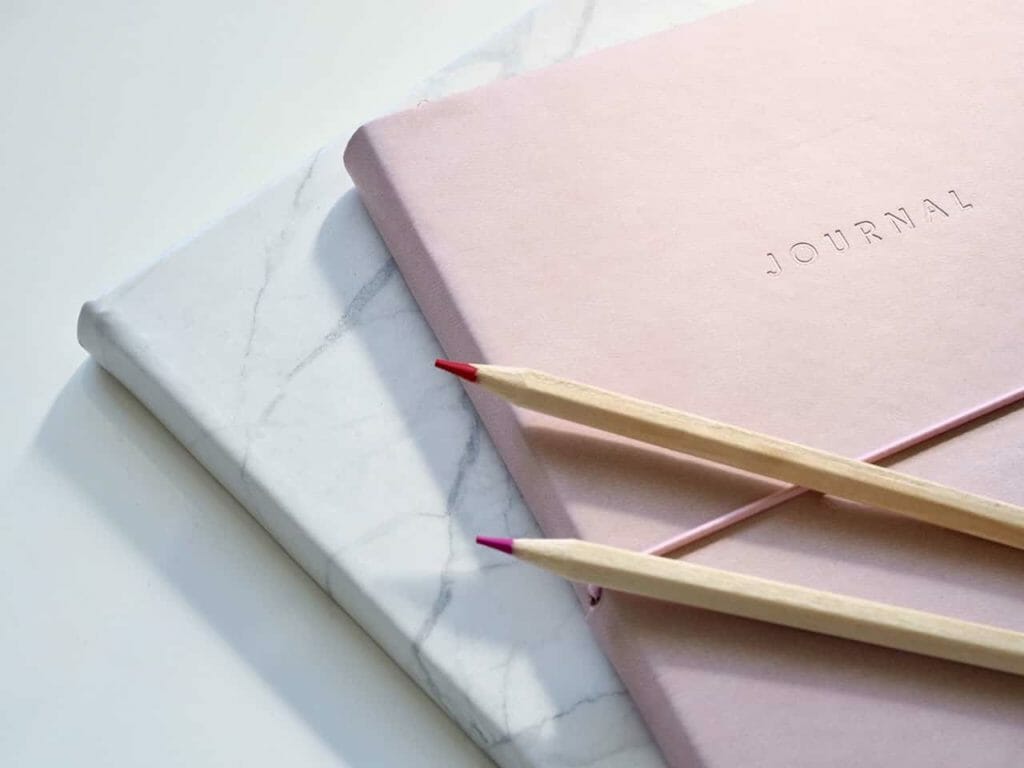
Here’s a situation most of us were in at some point in our lives – you sit down with your friends and one of them goes “what a weird dream I had last night!” Then they proceed with explaining how they dreamed about something strange like pigs in a mall, or a literal “cats and dogs” rain. But the amusing thing is – everything they saw in a dream was there for a reason. Things we dream about appear as a symbol of something that can be related to our waking life. Understanding those symbols means being mindful. Dreams are just a mirror to our subconscious. Carl Jung said that our dreams show us messages and warnings, and that’s a good enough reason to try and interpret them.

The best way to get better at dream analysis is to keep a dream journal. What that means is recording your dreams on a daily basis. Over time, it will help you recognize patterns that will lead to a better insight into your actions, feelings and relationships in waking life.
Here Are Some Of The Reasons Why You Should Keep A Dream Journal:
- It improves your memory
- It rehearses your response to aggravating situations
- It helps you reconnect with your creative side
- It reduces stress
- It helps understand and deal with your emotions
- It helps you learn from your own mistakes
- You’ll learn to dream lucidly
As you can see, there are many benefits from keeping a dream journal. There’s one more argument we didn’t mention above – dream journaling is fun! So now that we’ve covered the reasons, we’ll share some tips that can help you start this enjoyable hobby.
Here Are Eleven Tips For Keeping A Dream Journal:
1. Write Things Down As Soon As You Wake Up
This is the first and most important tip when it comes to keeping a dream journal. You’re probably aware that dreams fade in a glimpse, and by the time you’re stretching out and planning to get out of the bed – poof, the memory is long gone.
Always keep your journal and a pen on a bedside table. As soon as you wake up, grab it and write down all the details before you forget it.
Keep in mind that you won’t always be able to write dream memories down before they fade. This is especially true if you’re only starting to keep a dream journal. But, the more you practice, the better you’ll become.
2. When Waking Up, Try Staying As Still As Possible
This can be difficult, and you might forget that the first few times, but when you’re waking up, it’s important to move as little as you can. Staying in the same position actually helps to recall dream details. That’s because your body hasn’t awakened yet, and your mind can still be reenacting dream events.
3. Refrain From Using Technology
While our phones are probably the first thing we touch in the morning, try to refrain from that when keeping a dream journal (see also How To Understand Your Dreams). By the time you read a text message, you’ll barely remember what the dream was about, let alone all the details required for a proper dream interpretation.
Most people like keeping digital notes, and that’s okay. However, by the time you turn the computer on and open a blank document, you’ve probably forgotten some things you’ve seen in a dream. Therefore, it’s best you write things down on paper, and then transfer it to a computer file.
4. Write On Every Other Line
When you write down your dream, use every other line in a journal. That’s because you can later add notes while reading. Interpreting takes time and knowledge, so every time you learn something new about a certain symbol you’ve seen in your dream, you can go back to those pages, and add new notes.
5. Be As Detailed As Possible
If you know anything about dream interpretation, then you probably know that every little detail matters. The dream doesn’t revolve around one single symbol. Instead, everything that catches your eye can have a specific symbolism behind it.
So when you write down things you remember, try being as detailed as possible. For instance, you saw a cat in your dream. This animal can appear as a symbol of neglect, independence, survival or femininity. In order to understand what was the analogy with the cat you saw in your dream (see also Cat Dream Interpretation), you’ll have to further analyze how that symbol appeared. Things like its color or size are all important for dream interpretation.
So, instead of writing “I saw a cat in a dream,” describe it. “An old, black cat crossed my path” is a much better description, and it will later allow you to analyze the meaning behind it.
6. Date Your Journal Entries
Putting a date on your entries is crucial. This allows you to look back at your older writings and correlate them to the events that were happening in your waking life. Too many times we wake up confused about a dream we just had. Only after a certain period of time passed, we’re able to recognize a certain parallel between symbols in our dreams and our life situation during that period.
7. Make Some Notes
We previously mentioned that writing on every other line allows you to add personal notes when rereading the journal entries. You can write down how you were feeling during that period, or if certain important things were happening at that time.
For example, for a whole month last year, you were constantly dreaming about being robbed. At the same time, you found out about being cheated in waking life. You see the parallel there? However, no matter how heartbreaking that experience was at that time, after a period of grieving, you move on and forget about it. So when you read your dream journal and see that you had dreams about robbery, you might not remember what those dreams related to in waking life. That’s why notes are important – dreams are a reflection of our life, and understanding your dreams requires understanding our situation at that time.
8. Draw Pictures
You know that old saying “A picture is worth 1000 words.” Sometimes, it’s easier to draw what you saw in a dream than write it down. This is especially true if you’re a visual person. One glance at the picture can help you recall the whole scenery, as if you dreamed about it a second ago.
You don’t have to be an artist. A simple doodle can help you just as much as a written entry can. However, if you’re skilled at drawing, then a picture can help you remember what you dreamed about as well as how you’ve felt during that dream.
9. Don’t Worry About Grammar, Punctuation Or Spelling
Time is everything when it comes to writing down dreams. By the time you figure out how a pharaoh is correctly spelled, you’ll forget what happened in the dream.
Forget about grammar or spelling, and write everything you can remember. You don’t even have to use full sentences. Once you got all the details written down, you can go back and reformulate the sentences to appear pleasant to the reading eye.
10. Share Your Dreams With Someone You Trust
A second opinion can prove to be quite useful with dream interpretation. Other people can share their knowledge with you, as well as give a different view on the same matter. It’s not uncommon to oversee a certain sign until another person points at it.
There’s another reason why sharing dreams is good. That way, you’re recounting a dream out loud, which sometimes can lead to a “eureka” moment. For some reason, our brain can understand some things better when we say them instead of reading them.
11. Remember To Have Fun!
Keeping a dream journal is all about fun. Unless you’re going through some specific psychotherapy, dream interpretation is not an obligation, but more of a pleasure. It’s nice and useful knowing what your subconscious is telling you, but it’s also something you can live without. When something you’re doing for fun stops being fun, it’s time to change that hobby.
Dream journaling is a way of understanding your deep emotions and unburdened thoughts before your awakened self suppresses them. Try to be objective when analyzing, but understand that some things will only be clear in retrospect after a certain period. As with everything else, patience and practice will help you get better.
- Brown Dog Dream Meaning And Interpretation - January 3, 2023
- What Does A Beating Mean In Your Dream? - January 3, 2023
- What Does It Mean To Dream Of White Shoes? - January 3, 2023

